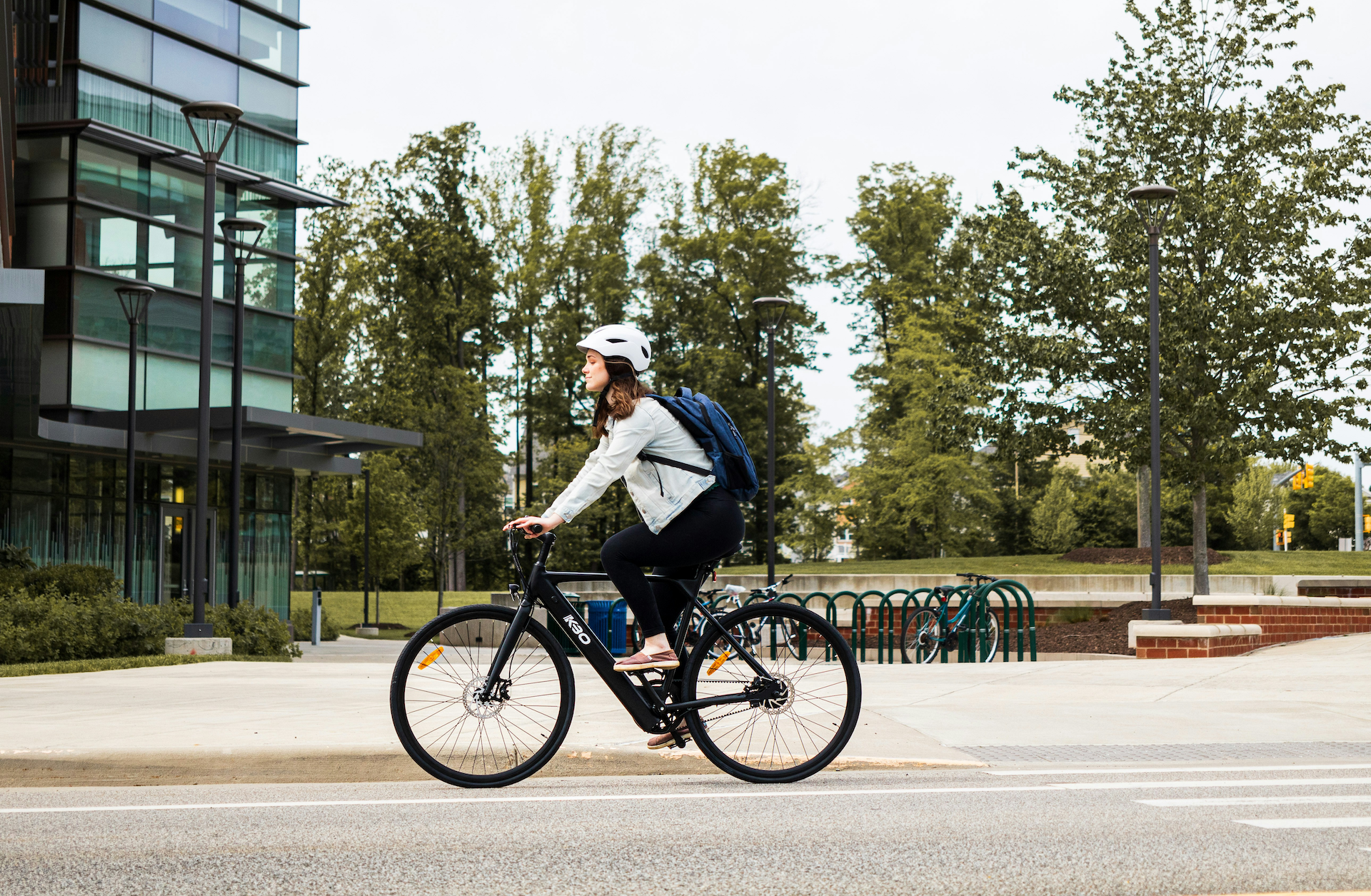Business
B.C. E-bike Rebate Program Increases Accessibility and Reduces Emissions

Income-based rebates for electric bicycles in British Columbia are making cycling more affordable, promoting health, and enhancing sustainable transportation options. A recent study conducted by researchers at the University of British Columbia (UBC) revealed that the B.C. Electric Bike Rebate Program, launched in June 2023, significantly influences travel habits among residents.
The program offers rebates ranging from $350 to $1,400 based on income, aiming to lower financial barriers for potential e-bike purchasers. Dr. Alex Bigazzi, an associate professor in the department of civil engineering at UBC, led the research involving 1,004 participants over the course of a year. According to Dr. Bigazzi, “E-bikes make cycling a practical travel option for a wider range of people and trips, but the purchase cost can be a substantial barrier, especially for those with low income.”
A significant finding from the study indicated that up to 60 percent of participants would not have purchased an e-bike without the rebate. The financial incentive proved particularly effective in encouraging new purchases among individuals with lower incomes.
After one year of participation, rebate recipients reported an average increase in e-bike use of 40 kilometres per week, while reducing their reliance on motor vehicles by 17 kilometres per week. Participants frequently replaced car journeys with e-bike rides, particularly for commuting, errands, and shopping. Leisure trips also contributed to e-bike usage, although they constituted a smaller portion of overall rides, especially among lower-income users.
Notably, 87 percent of participants retained access to a car after acquiring an e-bike, suggesting that e-bikes often serve as a supplement to car ownership rather than a complete replacement. This dual approach allows households to lessen their dependency on driving.
The environmental benefits stemming from the rebate program are substantial. Overall travel emissions decreased by 17 percent annually, equating to approximately 1,000 tonnes of carbon dioxide. Alongside reduced emissions, participants experienced a 12 percent decrease in travel costs and a 13 percent increase in physical activity during travel. The rebates effectively lowered e-bike purchase costs by 43 percent, with lower-income households seeing the greatest benefits. The total of $6.5 million in rebates generated an estimated $8.7 million in new revenue for local retailers.
Dr. Meghan Winters, a co-investigator from Simon Fraser University, emphasized the broader societal benefits of the program, stating, “E-bikes bring benefits to users in cost, mobility, and physical activity. But the impacts of this rebate program are also more broad, with societal benefits of reduced emissions, replacement of car trips, and generated revenue.” The researchers estimated that nearly 5,000 rebate recipients collectively saved around $2.3 million in travel costs annually, despite an overall increase in weekly travel.
To enhance the effectiveness of the B.C. e-bike rebate program, the research team compared their findings to a prior study on e-bike rebates in Saanich, which showed similar trends in reduced car usage and increased e-biking. They proposed several adjustments that could improve access and efficiency, including adjusting eligibility criteria from personal to household income, collaborating with employers to attract commuters, prioritizing regions lacking adequate public transit, and modifying rebate amounts to maintain affordability for low-income households.
Dr. Bigazzi noted the significance of enjoyment in e-bike usage, stating, “We found it interesting how often people reported fun or enjoyment as key factors in their sustained shift to e-bike use after one year, which are aspects of travel largely ignored in transportation engineering and planning.”
The study received funding from the Social Sciences and Humanities Research Council of Canada (SSHRC) through the Mobilizing Justice Partnership Grant, with Dr. Steven Farber from the University of Toronto serving as the principal investigator. The research was conducted in partnership with the B.C. Ministry of Transportation and Transit and the District of Saanich.
For further details, the full report can be accessed [here](https://reactlab.civil.ubc.ca/bc-ebike-incentives/).
-

 Science4 months ago
Science4 months agoToyoake City Proposes Daily Two-Hour Smartphone Use Limit
-

 Top Stories4 months ago
Top Stories4 months agoPedestrian Fatally Injured in Esquimalt Collision on August 14
-

 Health4 months ago
Health4 months agoB.C. Review Reveals Urgent Need for Rare-Disease Drug Reforms
-

 Technology4 months ago
Technology4 months agoDark Adventure Game “Bye Sweet Carole” Set for October Release
-

 World4 months ago
World4 months agoJimmy Lai’s Defense Challenges Charges Under National Security Law
-

 Lifestyle4 months ago
Lifestyle4 months agoVictoria’s Pop-Up Shop Shines Light on B.C.’s Wolf Cull
-

 Technology4 months ago
Technology4 months agoKonami Revives Iconic Metal Gear Solid Delta Ahead of Release
-

 Technology4 months ago
Technology4 months agoApple Expands Self-Service Repair Program to Canada
-

 Technology4 months ago
Technology4 months agoSnapmaker U1 Color 3D Printer Redefines Speed and Sustainability
-

 Technology4 months ago
Technology4 months agoAION Folding Knife: Redefining EDC Design with Premium Materials
-

 Technology4 months ago
Technology4 months agoSolve Today’s Wordle Challenge: Hints and Answer for August 19
-

 Business4 months ago
Business4 months agoGordon Murray Automotive Unveils S1 LM and Le Mans GTR at Monterey









